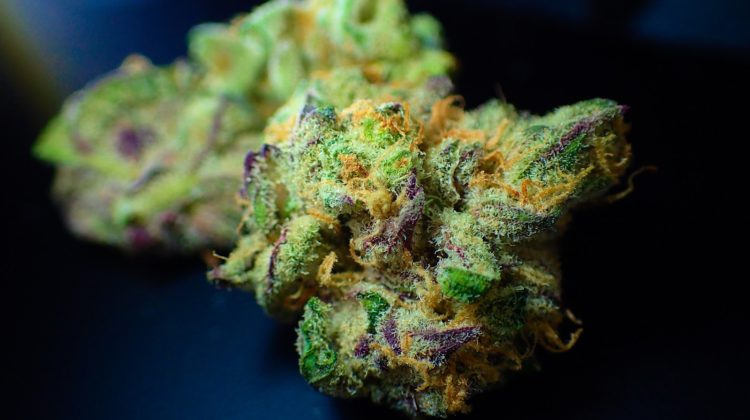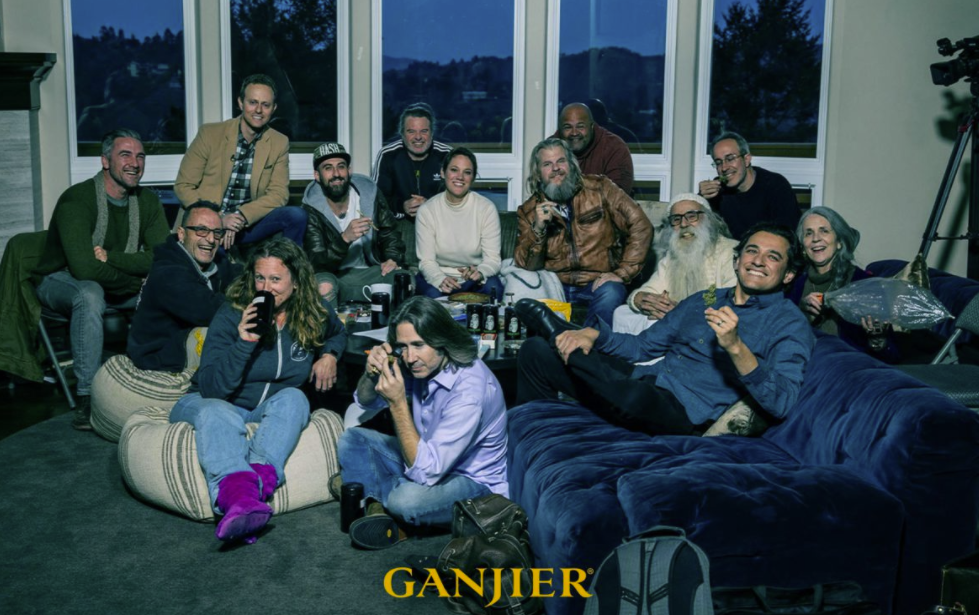
Analyzing the taste and smell of cannabis is an essential part of being a ganjier. Photo from David Cardinez.
Similar to a sommelier of wine, a cannabis ganjier is a highly trained expert who has a deep understanding of cannabis history and can distinguish subtle nuances in the taste, smell, look, and experience between products. Once a person is a ganjier, they are not only a cannabis professional, but they also possess knowledge that will help raise the standard of the industry.
Emerald spoke to members of The Ganjier Council for an inside look at becoming a ganjier.
The Ganjier Council

Green Flower created The Ganjier Council and the certification process. Green Flower is a company that focuses on the education of cannabis. They partner with universities, offer job-specific training, and work with cannabis businesses to provide training manuals.
Green Flower brought together 18 of the industry’s most widely known and respected individuals such as Swami Chaitanya, Kevin Jodrey, Patrick King (aka The Soil King), and countless others. They aimed to create a cannabis expert similar to that of a wine sommelier, a ganjier.
“The council itself is made up of experts in the cannabis space across sectors. So every point from cultivation to testing to science, flower, concentrate, hashish, and also the business side and understanding how dispensaries work, how the consumer interaction plays out,” explained Dr. Amanda Reiman, an expert in public health and council member. Reiman has studied cannabis consumption for over 20 years, and previously helped create a budtender training program.
Over the span of two years, The Ganjier Council has created a certification program for anyone looking to become a cannabis ganjier. They did so because, after years of cannabis prohibition, there was a lack of knowledge and information surrounding the plant.
Omar Figueroa, council member and cannabis lawyer who’s defended cannabis cultivators for over two decades, said that, “The Ganjier was formed to elevate the conversation. There wasn’t a source of high-quality education regarding cannabis at a more refined level. It was meant to create a new breed of cannabis professionals.”
Overall, the purpose of the ganjier program is to raise the standard of cannabis consumerism, according to the council.
Post from @the_ganjier on Instagram.
Becoming a Ganjier
There are three parts to becoming a certified ganjier: online training, in-person training, and three in-person examinations. The in-person training and exams take place in Humboldt County, California for hands-on experience taught by the council. For example, potential ganjiers practice customer service interaction and learn how to systematically assess cannabis.
Aside from a deep dive into cannabis knowledge, there is also a refinement of one’s pallet.
Reflecting on his own experience in the course, Figueroa talks about its difficulty, despite considering himself a cannabis expert.
“Identifying terpenes by their odors is very challenging because its not something that is often taught, and in our culture, we do not use our noses to that level of discrimination,” said Figueroa.
Post from @the_ganjier on Instagram.
Nevertheless, he said that “everybody who loves cannabis should consider getting their ganjier certification. It’s a large investment but I think it’s worth it. There’s so much depth of material that you can make learning about cannabis a lifelong process.”
Many students appreciate the live part of the certification process. That’s because it connects them with the top leaders in the cannabis industry.
But aside from connections, the certification helps participants secure jobs.
For example, Reiman explained, “several students have been hired right out of the program because of their certification, and many are starting their own cannabis companies and businesses.”
The online portion of the course costs $699 and the live training and exams portion costs $2,697. They offer flexible payment plans for those looking to spread their tuition over multiple payments. Additionally, for anyone who has been directly and negatively impacted by the War on Drugs, there is a scholarship that covers 50% of tuition.
Who is the Ganjier For?

Greeb Flower did not design the program for one kind of person. Instead, the program welcomes anyone who wants to make a name for themselves in the cannabis industry.
In fact, people from throughout the U.S. and beyond have gained their certification. Many come from places without legal cannabis.
“Something that really surprises me is the number of students from states where cannabis is still illegal. They come from other countries,” Reiman added, “they come from a history of having interactions with criminal justice; [and] they come from corporate jobs.”
“The training will benefit anyone looking to expand their cannabis knowledge, whether they are already working in the industry or looking to join,” she said. “The certification gives people the tools they need to thrive with the legalization of cannabis.”
Reiman mentions that when medical cannabis was first sold, there was a lack of knowledge.
“In the early days of medical cannabis, there were edibles in dispensaries that hadn’t been tested and we didn’t know the potency,” she further explained of the need for certified experts.
She saw this as a huge public safety issue. But fortunately, products in dispensaries now come with labels to let consumers know what they are putting in their bodies.

Educating cannabis experts will help guide consumers to products that better suit their needs.
Under cannabis prohibition, there was a demand for high THC products that farmers grew indoors. But Reiman says, “the idea that THC content and the ‘bag appeal’ are predictors of quality are a misconception. There is so much more going on in the flower besides just THC.”
The Future of Ganjier
Figueroa hopes to see an evolution of cannabis knowledge as the current ganjiers gather more information, and go on to train future generations of ganjiers.
“We’re all beginners when it comes down to it,” he explained. “We want it to evolve to the level where our current understanding seems rudimentary.”

The truth of the matter is that there is still much to learn about cannabis. Cannabis legalization has led to countless cannabis discoveries, but it is up to the next generation of cannabis experts to really push the depth of cannabis knowledge.
Reiman said she hasn’t seen the impact she hoped for from cannabis legalization. But she still has hope for the future. “As we grow into an industry, there [are] a lot of things about prohibition times that we need to make up for. We still have a long way to go. The cement is still wet and this is not set in stone.”



Leave a Reply